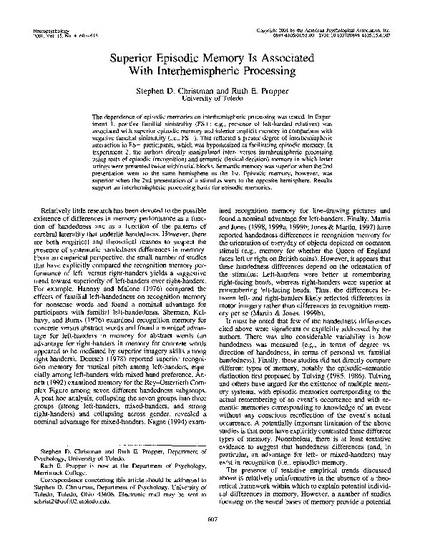
- Analytical, Diagnostic and Therapeutic Techniques and Equipment,
- Applied Behavior Analysis,
- Biological Psychology,
- Clinical Psychology,
- Cognition and Perception,
- Cognitive Psychology,
- Developmental Psychology,
- Experimental Analysis of Behavior,
- Health Psychology,
- Human Factors Psychology,
- Other Psychology,
- Psychology,
- Social and Behavioral Sciences and
- Theory and Philosophy
The dependence of episodic memories on interhemispheric processing was tested. In Experiment 1, positive familial sinistrality (FS+; e.g., the presence of left-handed relatives) was associated with superior episodic memory and inferior implicit memory in comparison with negative familial sinistrality (i.e., FS-). This reflected a greater degree of interhemispheric interaction in FS+ participants, which was hypothesized as facilitating episodic memory. In Experiment 2, the authors directly manipulated inter- versus intrahemispheric processing using tests of episodic (recognition) and semantic (lexical decision) memory in which letter strings were presented twice within trial blocks. Semantic memory was superior when the 2nd presentation went to the same hemisphere as the 1st. Episodic memory, however, was superior when the 2nd presentation of a stimulus went to the opposite hemisphere. Results support an interhemispheric processing basis for episodic memories.
Available at: http://works.bepress.com/ruth-propper/3/
